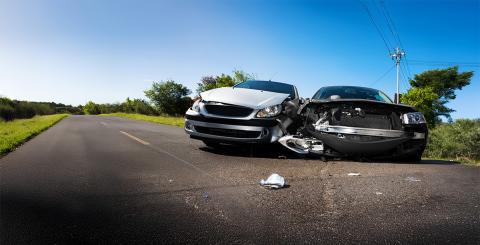How to buy a car

You’ve decided to buy a new car. How exciting! You can already feel the thrill and anticipation of cruising around in your new set of wheels. It’ll be all yours! We get it. You have every right to feel proud. Buying a car is a big deal. It gives you a sense of accomplishment and freedom. It’s not something you do every day!
Should you opt for a new car or a used one? How should you go about finding the perfect car for you? The key to success is taking the time to ask the right questions, consider the right factors, and take the right steps. We’ve created a 7-point checklist of things to consider to help you make the best decision.
1. Your life and personality
This is your starting point.
- Why did you decide to buy a car in the first place and what do you plan to do with it?
- Are you single? Do you have a partner or spouse? Do you have kids, maybe even a teen who will be using the vehicle?
- Do you plan to carshare?
- Are you going to drive long distances or just tool around town?
- What safety features are important to you?
These are the kinds of questions you need to consider. Don’t forget to think ahead a little, too. You might change jobs, have a baby, etc. How you answer these questions will help you decide between a new car or used car. But you don’t need to take notes—we’ve made it easy by listing the advantages of each option at the end of this post.
2. Your needs
Naturally this point is connected to the first. How big of a car do you need? Think about the room between seats and how much cargo space you’ll want, too. Your vehicle should be practical and suit your life and your personality. For example, if you love to take trips with your friends or family, buying a car is a great way to make your travel dreams come true.
Last but not least, you’ll want to think about what car accessories you need, really want, or would consider nice to have (there are tons, ranging from super quirky to super high tech!).
3. Your budget
Buying a car is a big investment. You’ll want to go into it with a budget in mind. This may be where you need to separate your “needs” from your “wants.”
Remember it’s not just about the price of the car. You also need to consider the expenses associated with owning and using a vehicle, including car insurance, gas, maintenance, and repairs (especially for a used car). Your new car should be a source of enjoyment, not financial stress! It’s definitely worth your while to do all the math, with realistic numbers, to ensure you don’t overspend and are happy with your choice.
4. Fuel consumption
As we mentioned above, gas is a significant expense associated with buying a car. Obviously the more you drive, the more gas you use. But there’s also what’s called a vehicle’s fuel consumption rating, which is different for each type or model of car: gas guzzler vs. gas sipper, electric, hybrid, etc. It makes a difference for the environment—and your wallet.
5. Reliability
Reliability is a must when you’re shopping for a car. Sure, you want a great driving experience, but you also want good handling and comfort. How does the vehicle handle around corners? Does it offer different drive modes or options? Questions like these can help you balance fun and safety.
6. Finding the car for YOU
It takes time to find the right vehicle. Your goal is essentially to find the right model at the right price. It sounds simple, but it may take weeks of searching, whether you’ve decided to buy a used car or a new one. In addition to the factors cited above, here are a few more you’ll want to keep in mind:
- Web searches and in-person visits to dealers, used car specialists, auto trading websites, classified ads, private sellers, etc.
- Information about models, features and options, safety ratings, colours, etc.
- Financial factors, including negotiations, rebates, financing terms, interest rates, and other fees
- Warranties available and their limitations: legal warranty, manufacturer’s warranty, extended warranty, etc.
- Maintenance services offered by the dealer
- Inspections (for used cars) and test drives (for any car)
- Fine print
Throughout the process, don’t let anyone pressure you and don’t make impulsive or rash decisions. You’ll be glad you took the time to make a well-deliberated purchase.
7. Car insurance
Your car insurance premium will be determined by a variety of criteria such as the coverage selected, your driving experience, your driving record, where you live, the model and value of your vehicle, and what you use it for. Of course, the more coverage you take out, the higher your premium will be. Speak with an insurance representative to find out more.
NEW OR USED? THE CASE FOR EACH
Our (non-exhaustive) lists of the advantages of each option.
Advantages of buying a new car:
- - A new car gives you a sense of security
- - It gives you peace of mind because it has a warranty
- - It comes with the latest technology
- - You can get a loan at a lower interest rate
- - It has good resale value
- - It is generally more fuel-efficient because all its parts are new
- - It has no accident history
Advantages of buying a used car:
- A used car will lose less value, because depreciation is steepest in the first years of ownership
- It is often more negotiable
- You won’t have to pay transport and preparation fees
- You can buy a car even on a tight budget
- Car insurance premiums are generally lower for a used car because its value is lower and it needs less coverage
We hope this checklist will help you through the car-buying process. And don’t hesitate to contact a Promutuel Insurance agent for advice. We’re there for you so you can hit the road with peace of mind!




